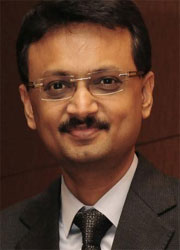
Mr. Ketan C Kothari, Chairperson, BICSI, India District
 Q. How is BICSI geared to address the existence of skill gap in the industry? How does BICSI plan to address the deficit of networking professionals?
Q. How is BICSI geared to address the existence of skill gap in the industry? How does BICSI plan to address the deficit of networking professionals?
As skill requirements are becoming more vertical, we are witnessing an extensive demand for specific certifications. General certifications do serve to set the base requirement in what IT managers look for in their specialists; however, organizations are looking at specific skills catering to particular verticals. BICSI will work closely with educational institutions to see that specialized training and certification programmes are integrated in the academic curriculum so that engineers are ready to deliver and they can be absorbed immediately.
It is utmost important today that we invest in building a pool of IT professionals with the right skills and engage them to acquire knowledge, best practices, and implementation methodologies. BICSI aims to bring in an organized process, in the way physical connectivity is implemented for any kind of ICT requirement. BICSI training initiatives allow both installers and ICT solutions providers to work together in providing world-class technology and solutions to the ICT industry.
Q. What are the advantages BICSI credentials offer to enhance the professional career of a Network Installer?
BICSI offers training courses and advanced certification to ICT professionals to enhance their knowledge and skills that eventually enhances their professional reputation. The BICSI Cabling Installation Training and Credential Programme promotes a career path for commercial cabling installers who learn how to conduct site surveys, pull wire/ cables, terminate and test copper and fiber cabling system to the highest level of specification.
Q. With the emergence of newer technologies like Cloud and Mobility and increased convergence of Voice, Data, and Video, how is BICSI helping the ICT community?
With the tremendous growth in mobility and increased adoption of unified communications, cloud computing, and collaboration services, the demand for network bandwidth is increasing tremendously and to support the user demand & applications, the LAN and WAN cabling is seeing higher than average growth. HD video, voice and data services plus remote access of applications is driving the infrastructure growth. This would require skilled and trained people to deploy the IT infrastructure.
BICSI offers a wide range of training courses to suit those who are new to the ICT industry as well as those who are looking to expand their current knowledge of the industry and thus helps build this IT infrastructure.
Q. How does BICSI work on standards and guidelines in design and installation process?
The BICSI international standards programme creates standards and guidelines for use in design, installation and integration of information communications technology. In addition to the developments of standards, BICSI is involved with code and standards writing bodies around the world, further assisting the ICT community in delivering safe, efficient and effective products, systems and services to meet the needs of the industry.
Q. What are the upcoming programmes of BICSI in India?
BICSI India annually conducts extensive Conferences, Satellite Seminars and various Technical Workshops across India. The Conferences are held in Mumbai and Bangalore while the Satellite Seminars are extended to Tier-II cities such as Pune, Delhi, Chennai, Kolkata, and Hyderabad.
The final leg of the Satellite Seminar for 2014 will be held on December 12 at Hyderabad. The seminar is targeted to End-users, System Integrators, Installers, Consultants, Distributors, OEMs from the ICT community, Members of BICSI and other ICT associations of India.
Taking forward the bi-annual BICSI India District Conference and Exhibition, BICSI India will host the Mumbai chapter on Friday, April 24, 2015, at The Westin, Mumbai. The symposium will be honored by the presence of BICSI President Mr. Brian Ensign and BICSI International Director Mr. Paul Weintraub.
BICSI India also plans to roll out the much awaited RCDD training programme starting January 2015.
